Description
TABLE OF CONTENTS
| SUBJECT | Page no | |
| 01 | Introduction to Law | 01 |
| 02 | Indian Contract Act,1872 | 22 |
| 03 | Transfer of Property Act,1882 | 75 |
| 04 | Easements Act,1882 | 126 |
| 05 | Negotiable Instruments Act, 1881 | 134 |
| 06 | Hindu Marriage Act,1955 | 163 |
| 07 | Hindu Succession Act,1956 | 167 |
| 08 | Indian Penal Code, 1860 | 174 |
| 09 | Civil Procedure Code, 1908. | 232 |
| 10 | Limitation Act, 1963 | 327 |
| 11 | Specific Relief Act, 1963 | 333 |
| 12 | Criminal Procedure Code, 1973 | 344 |
| 13 | Indian Evidence Act,1872 | 433 |
| 14 | Protection of women from Domestic Violence Act,2005 | 501 |
| 15 | A.P.Buildings (Lease, Rent & Eviction) Control Act,1960 | 509 |
| 16 | A.P. Land Encroachment Act,1905 | 526 |
| 17 | Stamp Act,1899 | 528 |
| 18 | Indian Registration Act,1908 | 547 |
| 18 | The Specific Relief Act (Amendment), 2018 |
F O R E W O R D
KIRAN PALAKURTHI,
(Former Judge)
ADVOCATE,
High Court of Hyderabad.
Head and Partner,
Power Law Chambers, Hyd.
__________________________________________________________
I have meticulously gone through the book. Any attempt on my part to sketch its clarity, elegance, depth, rich practical insights and presentation, would certainly destroy its beauty. But, one thing I can certainly say, during my twenty three years of intellectually stimulating legal career, I didnot come across such a fantastic book on Law. In my opinion, not only every aspiring Judge but every Judge and Lawyer shall carry this Book.
KIRAN PALAKURTHI.
P R E F A C E
I got enrolled on the rolls of Bar Council in the year 2003. Incidentally, in this very year,the three year’s experience rule for an advocate to appear in Civil Judge (Jr.Division) exam was relaxed. Thus, a fresh graduate was alsoallowed to appear for Civil Judge exam. I was compelled to take up the call. I wrotethe exam and attended interview but my name did not figure in the final result. Now, I took up the challenge to clear the exam in the next notification. The first thing I did was, I examined thoroughly the questions that were asked in previous civil judge exams. I made a study of question papers set by many High Courts. My study revealed that the entire focus is on very basics of law that can be learnt from Bare Acts. The emphasis is from practical point of view. The focus is not on citations. The focus is not on explanations or justifications about legal ideas. Finally, I realized Civil Judge exam is a right opportunity to strengthen one’s basics of law.
Keeping the above requirement in mind, I read many law text books covering Civil Judge exam syllabus. I found no useful text book meeting my requirement. All these books are serving the purpose of either a lawyer or an academician or a student who wishes to clear Law Graduate exams. So, I prepared my own notes and qualified in the exam and worked as Judge for four years but resigned due to personal reasons. Later, I gave guidance to many who also cleared their exams and are presently working as Judges and many of those selected candidates requested me to write a book that could meet above requirements of Civil Judge exam. Accordingly, I wrote this book.
This book begins to give a panoramic view about Pre-Society and Post-society vis-a-via law, principal operative tools of law, and values of legal system. It is followed by discussion on some of the fundamental tools that are common to subjects covered under our Civil Judge exam. They are like : Lawful, Illegal, Prohibited by law, Civil Liability, Offence, Person and different kinds of persons recognized under law, Animal and its status under law, Guilty Mind, Injury, Property and its Kinds, Modes of acquiring property and possession. I am sure that the insightful and robust understanding of the introductory part will put the student on a right trajectory to carry the journey with great ease and superb speed.
I believe that law, especially subjects covered under our exam, should be studied as one integral entity rather than isolated topics. Hence, in this book I attempted an integrated approach.
The substantive laws offer innumerable rights to person and subject them to variety of liabilities. In this connection, I shall inform you, in our examination you will not be tested about social, historical or philosophical causes about legal right or liability. But, they test your understanding and application of elements of particular right or liability. I am of the firm opinion that a person without having sound understanding about substantive civil rights, can’t appreciate criminal liabilities prescribed under penal law. Accordingly, I started with Substantive Civil laws such as Law of Contracts, Transfer of Property, Easements, Rent Control, Negotiable Instruments, Hindu Marriage and Succession Laws and finally Substantive Penal law i.e., Indian Penal Code. I shall share with you in all these subjects, at the beginning, I gave small introduction followed by organised presentation of subject under various concepts covered under those Bare Acts or Codes. I didn’t quote any citations in my discussion as I see no great purpose in it. But I quoted illustrations given in Bare Acts as they are been frequently asked in the examination. My attempt is to explain the Bare Act or Code in a lucid and organised format so that student can easily prepare himself for exam.
The Procedural laws, especially Evidence Act, has been given great emphasis in all Judicial exams conducted by High Courts. After all, the efficient delivery of Justice is possible provided Judges mastery over procedural laws is impeccable. I shall state thatour Law Colleges and Universities failed to give proper attention to procedural subjects especially from our exam point of view. In fact, they are treated as if they are unexciting subjects, though they cry that there is something wrong with our justice delivery process. Hence, in this book to create interest in the mind of the student their importance and special distinctions were clearly emphasised with practical view point. The treatment of these subjects are also in a new dimension. They are dealt in a case flow method. I am sure that if you are attentive in our courts for a period of three to six months, explanation offered in this book will be very stimulating and beneficial.
The last part contains special legislations. It refers to those laws which besides creating substantive rights laid down their own adjudication mechanisms. They are like: Protection of Women from Domestic, Rent Control Law, A.P.Land Encroachment. Finally, at the end of the book certain annexures are given for quick reference of the subject.
Having stated the above, despite meticulous editing and scrutiny of entire manuscript errors do occur. As such, if any mistake or error creeps in neither the author nor the publisher is in any manner responsible. Readers are advised to consult relevant Bare Act or Code in case of any discrepancy or doubt.
All comments and suggestion for improvement of the book are welcome.
ANEEL KHIRRAN KUMAR,
(Former Judge)
ADVOCATE,
High Court of Hyderabad.
Partner, Power Law Chambers, Hyd.
About Author
Former student and faculty at NALSAR University of Law. He Worked as Judge for four years and currently practicing as an Advocate at High court of Hyderabad and Ranga Reddy District Courts. He is a Partner of Law firm called “POWER LAW CHAMBERS”.

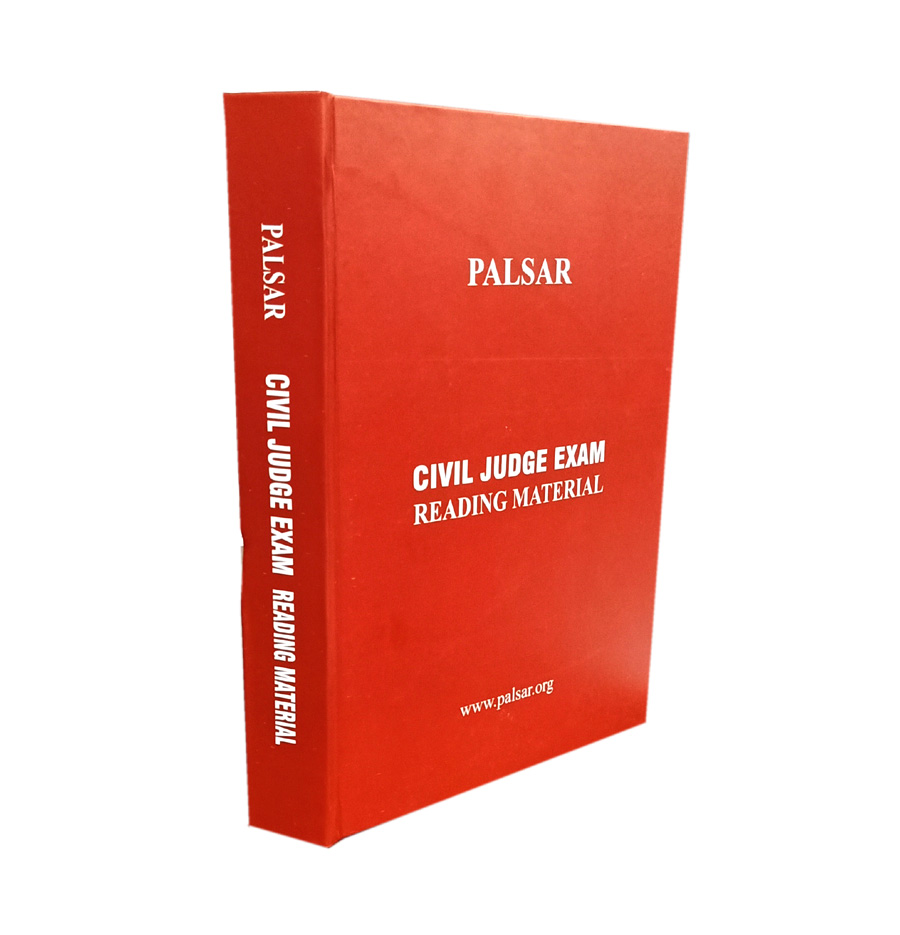



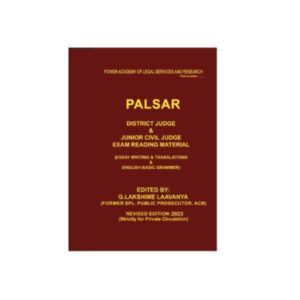
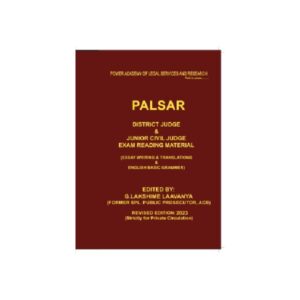
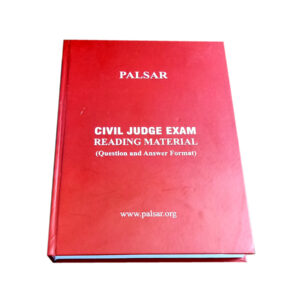
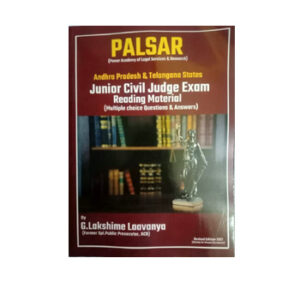
Reviews
There are no reviews yet.